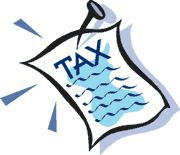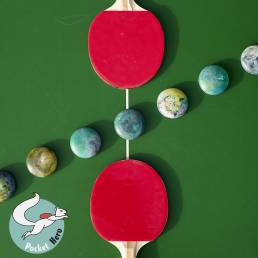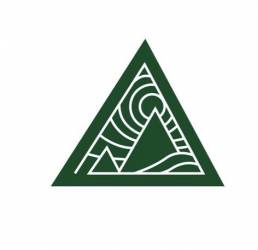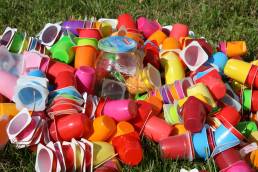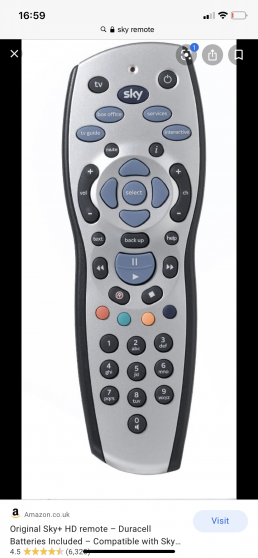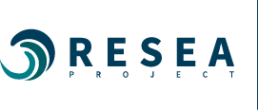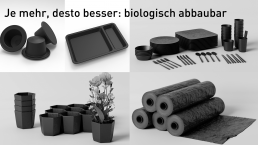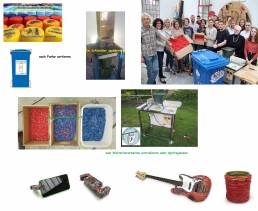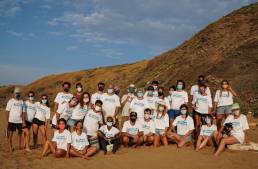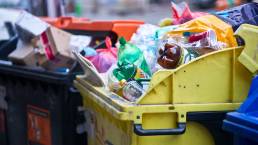Global Plastic Tax On Producers
I want a global tax on plastic that is charged on producers. So instead that people have to pay for their waste, it should be the producers who have to pay that bill!! That way, producers think twice how much packaging they really use. Also they will look for more sustainable packaging.
As I am not a politician, I do not know how to push this idea forward. But I would like to see it happen. Maybe there are others to also support this. Maybe we can set up a petition!! Or we can organize more people going to ask their direct representatives
Pocket Hero
Pocket Hero is a convenient and beautiful portable ashtray made out of locally recycled thermoplastic, designed to prevent littering in cities and in nature by allowing cigarette butts to be safely stored for disposal when you’re on the go.
Cigarette butts are the most common type of plastic litter, with 4,5 trillion disposed of improperly per year. They are the most frequent item of litter picked up on beaches and water edges worldwide. Have you ever looked in your favorite local park and counted the cigarette butts around one bench? You will most likely find dozens laying around. Maybe you have also seen them on a beach during your summer vacation and had to explain to your child not to eat them. Sadly, many of us have become desensitized to the fact that cigarette butts litter almost every corner.
We believe that it is not too late to turn over a new leaf. Pocket Hero is not only a convenient way for smokers to dispose of their cigarette butts safely and responsibly, it can also help start conversations about this problem and make an impact to change littering culture.
When we started thinking of the first prototype and how we will make our product, we thought of the global impact archived by local actions as the center focus. With that in mind, it became clear that we wanted Pocket Hero to be made out of locally recycled thermoplastic. The plastic should have a traceable supply chain throughout the recycling process and to be fully recyclable again after its end of the lifetime.
Since we are using exclusively locally recycled plastic to make our products, we will prevent the use of resources and contribute to local circular economies, as well as promote them.
The positive effect of more everyday products made of recycled plastics, that communicate how and they were recycled, will mean that people will be encouraged to look out for such products when they experience good design and quality. This will have a positive causal effect.
Users requirements make it not possible for companies to just create and design an exceptional product that solves a problem or make some tasks easier to achieve, but they demand to know how it is produced and delivered, which materials are involved, and what they should do with the product at the end of the life cycle. Portable ashtrays that can be found nowadays are failing to deliver, for both companies and society. We strongly believe our innovation empowers these demands, supporting the design and creation process.
It All Starts With You
It All Starts With You presses on the importance of individual attitudes when it comes to addressing climate change. It is time we Rethink our actions, Reconnect with the environment, and Redesign our lifestyle for a greener tomorrow.
We are a community of go-getters. Believing in the value of small inconsequential changes, we take a pledge to regularly adopt one conscious habit, acting on each for at least 21 days. Our discussions forum is a platform for everyone to come forward collaborate, talk about your experience, and motivate others to become action takers too.
After understanding the habits, we are now moving to phase two to educate children about why plastic doesn't lead to the world we all see in the books. We have already approached more than 10 NGOs and Mommy Bloggers.
Skalierbares Mehrwegsystem für Lebensmittelverpackungen
Mein Ziel ist es, ein skalierbares Mehrwegsystem für Lebensmittelverpackungen aufzubauen, sodass nicht nur Wasser, Bier und Joghurt, sondern auch Käse, Sushi und Hummus in Mehrwegverpackungen gekauft werden können. Ziel ist, dass mindestens 20% aller abgepackten Lebensmittel im Supermarkt langfristig in Mehrwegverpackungen angeboten werden, v.a. in den Segmenten mit den höchsten Umlaufzahlen und den am schlechtesten recyclebaren Verpackungen (z.B. Käse, Wurst/Fleisch, Convenience, Molkereiprodukte). Ziel ist es, zunächst im Kleinen die notwendige Infrastruktur aufzubauen, um zu starten, dann aber das System auszubauen, indem bspw. weitere, standardisierte Mehrwegverpackungen und perspektivisch neue Rückgabemöglichkeiten entwickelt werden, um den Lebensmitteleinzelhandel zu entlasten.
Für die Mehrweg-Pioniere aus der Industrie (Lebensmittelherstellung, Handel, Logistik, Reinigung, etc.) würde das Mehrwegsystem die Möglichkeit neuer Geschäftsbereiche und/oder die Erschließung neuer Kundensegmente bedeuten.
Das langfristige Ziel ist die Skalierung des Mehrwegsystems auf alle Produktsegmente des Supermarktes auf internationaler Ebene. Dadurch können von vornherein Verpackungsabfälle vermieden und wertvolle Ressourcen gespart werden, sodass aktiv zur Abschwächung des Klimawandels beigetragen werden kann.
Bildquelle: Bild von EKM-Mittelsachsen auf Pixabay
Lifewithoutplastics
So my idea is a wooden sky remote, not only would it appeal to everybody with sky, it would reduce millions of plastic remotes, even people that don’t care about the environment would still want this lastest product as it’s like a gadget, the remotes could also be engraved
ReSea Project Removing Ocean Plastic for companies so you can be partly or 100% plastic neutral
We have a fully transparent work model where we engage our fishermen in Indonesia to collect Ocean waste plastic that we rebuy from them where after this is sorted and recycled into new plastics, we reduce the co2 footprint with approx 80% recycling the plastic and prevent Virgin plastic to enter the supply channels.
NET-Kunststoffe als CO2-Senker und -Speicher
Wir kombinieren biobasierte und fossile Kunststoffe mit unseren Biokohlenstoffen zu "carbonauten OCM (Organic Carbon Materials)".
Diese Materialien sind wahlweise biologisch abbaubar oder dauerhaft stabil.
Sie sind leichter, beständiger gegen äußere Einflüsse und benötigen kein Carbon Black.
Unsere Biokohlenstoffe sind anerkannte NET (Negative Emission Technology): Eine Tonne Biokohlenstoff speichert dauerhaft das Äquivalent von bis zu 3,6 Tonnen CO2. Beispielsweise sinkt bei einem Anteil von nur 30 % Biokohlenstoff das GWP 20 von Polypropylen von +2,64 kg CO2/kg auf -0,47 kg CO2/kg.
Diese Materialstreckung reduziert die Mengen biobasierter und fossiler Kunststoffe und erzeugt gleichzeitig CO2-Senken und -Speicher. Da unsere Biokohlenstoffe billig sind, sinken auch die Preise, insbesondere bei den teuren und kaum verfügbaren Biokunststoffen. Je nach Biomassereste liegen die Preise bei 50 - 500 € je Tonne. Zudem entstehen Erlöse aus dem Verkauf der überschüssigen Energie (s. u.), dem Bioöl und den CO2-Zertifikaten. Das macht carbonauten OCM und das Geschäftsmodell wirtschaftlich äußerst attraktiv.
Es gibt zwei Varianten von carbonauten OCM. Biologisch abbaubar ist sinnvoll für Dinge wie Kaffeekapseln, Einweggeschirr, Trinkalme, Coffee-To-Go-Becher, Lebensmittelschalen, Pflanztöpfe, Folien etc. Die Biokohlenstoff wird im Abbauprozess nicht verstoffwechselt und gelangt so in die Umwelt, wo er im Boden die Grundlage für den "Superdünger Terra Preta" (Prof. Harald Lesch) bildet. Auch in Gewässern sind Biokohlenstoffe förderlich für die biologischen Lebensräume. Beispielsweise haben wir einen Pflanztopf aus Biokohlenstoff und Proteinen entwickelt, der mit der Pflanze eingepflanzt wird. Das Protein wird verstoffwechselt und liefern der Pflanze Stickstoff, während der Biokohlenstoff das Refugium für nützliche Mikroorganismen und Pilze bildet und darüber hinaus noch Wasser bindet das (ca. 3,5fache des eigenen Volumens).
Dauerhaft beständiges OCM ist recycelbar oder erweist sich als echte C-to-C-Lösung. Wir können diese Kunststoffe in unseren Analgen rekarbonisieren. Dabei werden die Kunststoffanteile in Kohlenstoff gewandelt und gelangen dann wieder als Zumischung in neues OCM. Beides reduziert die Mikro- und Nanoplastifizierung signifikant.
In der Konsequenz bedeutet dies Disruption: Je mehr carbonauten OCM hergestellt wird, desto besser ist das für die Umwelt.
carbonauten OCM kann auch in Bereichen wie Architektur, Bauwesen und Leichtbau eingesetzt werden, insbesondere eine Kombination mit Kunst- oder Naturfasern und anderen Additiven.
Hergestellt und verarbeitet wird carbonauten OCM auf herkömmlichen Produktionsanlagen zu Granulat für Spritzguss, Guss, Extrusion, Expansion (Schaum), Harzsystemen etc.
Die Biokohlenstoffe produzieren wir ab 2021 weltweit in dezentralen Standorten aus den holzigen Resten der Forst- und Landwirtschaft, Lebensmittel- und Holzindustrie. Die geeigneten Biomasseresten sind weltweit und unbegrenzt zur Verfügung.
Da wir bei der Herstellung der Biokohlenstoffe ausschließlich die in den Biomassen enthaltene Energie (Energiebilanz: 60 % Biokohlenstoffe, 30 % Pyrolysegas (vglb. mit schwachem Erdgas), 5 % Pyrolyseöl (daraus können auch Polymere erzeugt werden), 5 % Abwärmeverlust) nutzen, ist keine externe Energie erforderlich, im Gegenteil, wir erzeugen einen großen Überschuss an grundlastfähiger, erneuerbarer Energie (Temperatur 850°C sowie Strom über Gas-/ORC-Turbinen mit 45 % Effizienz). Dadurch kann die Produktion in bestehende Infrastruktur integriert werden oder auch mitten im Niemandsland erfolgen.
carbonauten OCM ist als Patent und PCT angemeldet.
Dritte beziehen wir ein
- F & E mit Hochschulen und Universitäten (erfolgt bereits)
- Unternehmen, die carbonauten OCM als wichtigen Pfeiler der CCS-Strategie sehen
- Lokale Beteiligungen an Standorten von Dritten wie Unternehmen, Energieversorger, Bürger, Genossenschaften etc.
- Mitarbeiterbeteiligungen
PreciousPlasticWesterWald - Recycle houshold plastic in every community
PreciousPlasticWesterWald steht für Updycling/Cicular Economy mit dem Focus auf der Wiederverwendung von Flaschendeckeln von Getränkeverpackungen. Diese sind sehr einfach zu sammeln und somit stellt dies eine sehr günstige Rohstoffquelle dar.
Das Material dieser Deckel (HDPE) eignet sich wunderbar, um daraus mit einfachen Mitteln neue Gegenstände für den Alltag herzustellen. Die dafür notwendigen Maschinen entstehen in der eigenen Werkstatt im Eigenbau. Die Idee zu diesen Maschinen stammt vom holländischen Team um Dave Hakkens.
Die Verschlüsse von Getränkeflaschen können als ganzes eingeschmolzen und mit Werkzeugen neu geformt werden oder sie werden mit einem Schredder zerkleinert und dann mit einem Extruder zu einer Kunststoffschnur geformt, die in unterschiedlichen Stärken verarbeitet werden kann. Genauso kan das Granulat mit Hilfe einer Spritzgiessmaschine in eine neue Form gepresst werden.
Erste positive Ergebnisse wurden in einem Kooperationsprojekt zwischen PreciousPlasticWesterwald, der Fachoberschule Gestaltung August-Sander-Schule Altenkirchen, dem Abfallwirtschaftsbetrieb des Kreises Altenkirchen, sowie der Jugendkunstschule Altenkirchen gesammelt. Die Schülerinnen und Schüler einer 12. Klasse der FOS Gestaltung haben im Rahmen des Kunstunterrichtes mehrere Produkte udn Designkonzepte entwickelt, die auch umgesetzt und hergestellt wurden. So entstanden u.a. eine E-Bass aus Coladeckeln, eine Spritzgussform für Handyhalter, Schmuck in unterschiedlichen Varianten und eine mit einem Logo gestaltete Tonne zum Sammeln von Deckeln in der Verbandsgemeidne Altenkirchen.
Diese Veranstaltungen sollen in Altenkichen und Umgebung ausgeweitet und noch mehr jungen Menschen zugänglich gemacht werden, so dass es langfristig eine oder mehrere Sammel- und Verarbeitungsstätten geben wird, wo Menschen aus Verpackungsdeckeln und Verpackunsgmaterialien neue Produkte aus HDPE und anderen verarbeitbaren Kunststoffen, wie PP, PET, Plexiglas herstellen können und somit dazu beitragen, dass diese Kunststoffe nicht in die Umwelt gelangen, sondern der wertvolle Rohsotff im Kreislauf bleibt, bzw. besser noch, in ein Produkt umgewandelt wird, dass gar nicht mehr in den Abfall wandert, da es ewig hält.
0 Plastic Menorca
After our first plastic cleanup expedition with a participation of 30 volunteers from August 11 - August 15 in Menorca, 10.000 microplastics picked up in 1h and nearly 350 kgs of plastics picked up from the sea, we would like to develop a technology that connects people who picks plastic from the sea, with environmentally friendly organizations that reuse these plastics to create products, including plastic cleaning, classification and transformation.
From waste to use
In our school project we want to start collecting plastic waste. If all pupils help we can get a lot of plastic. Then we would build machines to crash this plastic after having it sorted by color. Then we would melt it towards almost liquid and press it into re-usable drinking cups. As we have a lot of colors available and could even play with mixing colors. Everybody will get a very unique re-usable drinking cup!
Our teachers helped us to develop the idea and we look forward to have more people applying this idea.
At the moment we are 8 pupils working on this idea in our free time. Help is welcome. Tank you!
